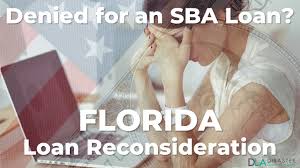What Happens to SBA EIDL Loan if Business Closes
Introduction
Running a business involves various financial responsibilities, including loans and debts. The Small Business Administration’s (SBA) Economic Injury Disaster Loan (EIDL) program has provided crucial financial support to numerous businesses. However, circumstances might arise where a business faces the unfortunate decision to close down. In such situations, it’s important to understand the implications and steps related to an SBA EIDL loan.
Understanding the SBA EIDL Loan
What is the SBA EIDL Loan?
The SBA EIDL loan is a low-interest loan designed to provide financial relief to businesses that have suffered substantial economic injury due to disasters or emergencies. It helps cover essential operating expenses that the business could have met had the disaster not occurred.
Eligibility Criteria for the SBA EIDL Loan
Eligibility for the EIDL loan is generally open to small businesses, agricultural cooperatives, and non-profit organizations that have experienced substantial economic injury due to a disaster. The business’s creditworthiness is evaluated, and collateral might be required for loans exceeding a certain threshold.
The Impact of Business Closure on SBA EIDL Loan
Repayment Obligations
When a business faces closure after obtaining an SBA EIDL loan, the loan’s repayment obligations don’t vanish. The borrower is still required to repay the loan amount along with any accrued interest. The closure itself does not relieve the business from its financial commitments.
Communicating with the SBA
It’s crucial for business owners to communicate their closure plans to the SBA. This transparency can lead to potential solutions and repayment options. The SBA might offer guidance on restructuring the loan or adjusting the repayment schedule to align with the business’s changed circumstances.
Impact on Collateral
If the EIDL loan was secured with collateral, such as business assets, and the business closes, the fate of the collateral becomes significant. The SBA might initiate proceedings to recover the collateral to offset the outstanding debt. Clear communication with the SBA can help navigate this process.
Steps to Take When Closing a Business with an SBA EIDL Loan
Notify the SBA
As soon as the decision to close the business is made, the owner should inform the SBA. This proactive step helps establish a line of communication and demonstrates the business’s commitment to addressing its financial obligations.
Review Loan Terms
Thoroughly reviewing the loan terms is essential. Understanding the specifics of the loan, such as interest rates, repayment schedule, and any penalties, can provide a clear picture of the financial obligations even after closure.
Explore Repayment Options
Engage with the SBA to explore potential repayment options. This might include negotiating a modified repayment plan or seeking temporary relief until the business owner can stabilize their financial situation.
Conclusion
Closing a business is a challenging decision, especially when there are outstanding financial obligations like an SBA EIDL loan. Business owners should proactively communicate with the SBA, understand their loan terms, and explore potential solutions to fulfill their responsibilities even in difficult times. By taking these steps, business owners can navigate the closure process while managing their loan obligations responsibly.


